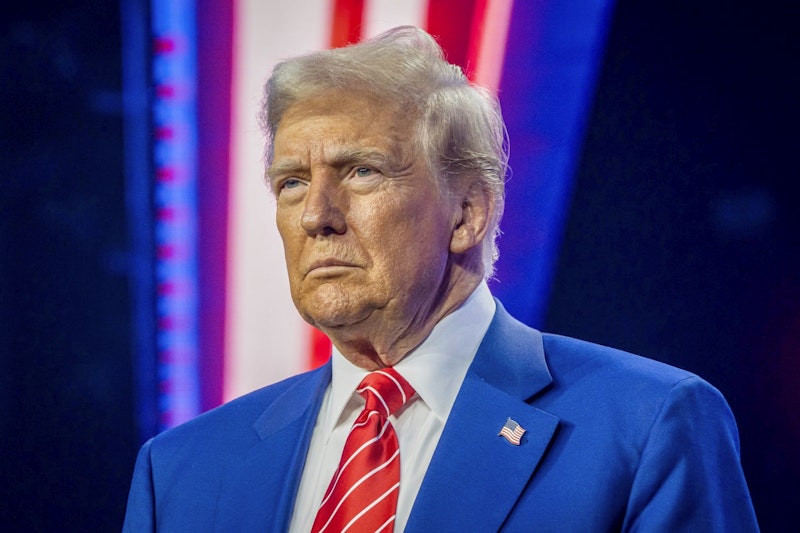Donald Trump entered the White House as a man who bombastically claimed he could bend the world to his will. Being president, however, requires more than branding and bombast. The office demands a delicate balance between influence and restraint, a lesson that Trump’s failed to grasp.
Trump’s 25 percent tariff on Canadian aluminum and steel sent shockwaves north of the border. Canadians, polite and understated in their fears, quietly panicked. Would our economy collapse? Would millions of jobs relocate to more tariff-friendly jurisdictions? It’s not like supply-chain jobs (which most of us have) are tethered to Canadian soil—they could just uproot and wander off, leaving behind polite resignation and a trail of tears falling into Tim Hortons coffee cups.
This panic, however, overlooks the absurdity of Trump’s strategy: trade wars aren’t won by shouting louder or swinging a bigger stick. The idea that the American economy could thrive while bludgeoning its neighbors into submission is as laughable as the notion that aluminum, the lifeblood of modern infrastructure, would suddenly stop crossing borders because of a tantrum in Washington. Canada, despite its polite exterior, isn’t a schoolyard weakling waiting to be shoved into the dirt.
Trump seemed to believe he could strut around the global playground, puffing out his chest and threatening to punch anyone who dared to disagree with him. It’s a classic bully move, one that relies on bluster to mask insecurity. Here’s the catch: sooner or later, the bully has to make good on their threats. And when that moment comes—when fists start flying—things tend to spiral out of control.
For Trump, the fists took the form of tariffs. The promised outcome? Economic dominance and "winning so much you’ll be tired of winning." The reality? Disrupted supply chains, rising domestic costs, and international partners scrambling to find alternatives to the unpredictable behemoth that is the United States. The global economy isn’t a zero-sum game; it’s an intricate dance, and Trump’s clumsy stomping only served to alienate allies and embolden competitors.
Canada played the long game. While Trump’s tariffs grabbed headlines, Canadian officials quietly worked to diversify trade partnerships and reinforce supply chains. The irony is that Trump’s threats to dismantle NAFTA—a deal he called "the worst in history"—ultimately resulted in a rebranded version of the same agreement, the USMCA, with Canada still standing tall.
The lesson here is simple yet profound: power wielded irresponsibly isn’t power at all. It’s a fleeting moment of perceived dominance that collapses under the weight of its own hubris. Trump’s tariffs, much like his presidency, were a testament to this principle. The world didn’t crumble under the pressure of his threats, nor did Canada’s economy implode. Instead, the global community adapted, proving once again that cooperation, not coercion, is the currency of true leadership.
Trump’s tenure as the "Master of the Deal"-turned president is a cautionary tale of what happens when the complexities of governance are reduced to the simplicity of a catchphrase. Negotiating real power isn’t about bullying or branding—it’s about understanding the interconnectedness of a world that can’t be forced into submission. Canadians knew this all along.

